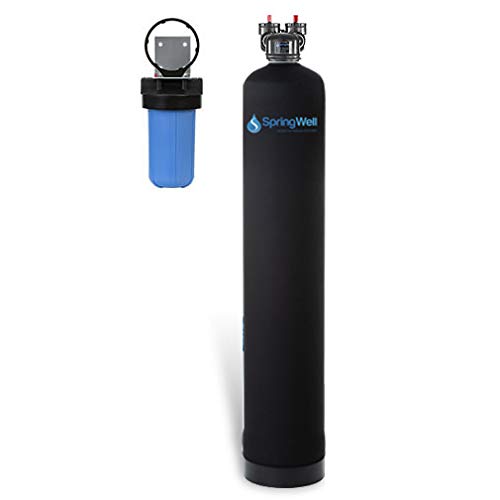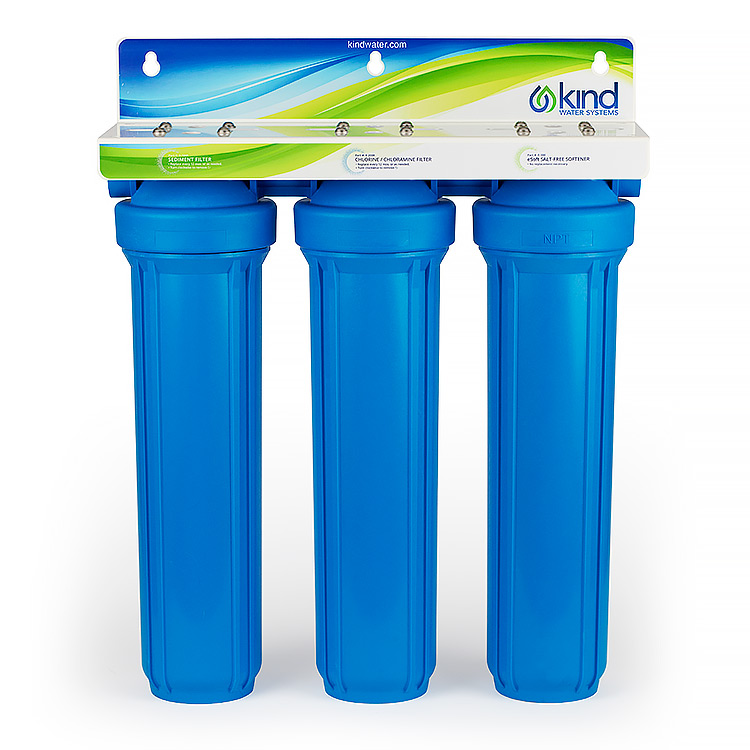Hard water is an undesirable issue for any household, leading to a host of problems such as damage to internal piping, appliances, limescale accumulation, and even skin irritation. To determine if our water suffers from excessive hardness, referencing a water hardness scale, specifically a chart listing the parts per million (ppm) of minerals, is crucial. By consulting this scale, we can assess the severity of the hard water problem and take appropriate measures to mitigate its adverse effects.
| Image | Product | Details | Coupon Code | Price |
|---|---|---|---|---|
 |
SALT-BASED WATER SOFTENER Springwell Water Whole House |
Type: Ion Exchange Grain Capacity: 32,000 – 80,000 grains Flow Rate: 11 – 20 GPM Warranty: Lifetime |
MHWT5 | Check Price |
 |
SALT-FREE WATER SOFTENER Kind Water Systems Whole House |
Type: Template Assisted Crystallization Grain Capacity: N/A Flow Rate: 15 GPM Warranty: Lifetime |
MHWT5 | Check Price |
Table of Contents
Scale Of Water Hardness (From Soft To Very Hard Water)
Water hardness is typically categorized into several levels, ranging from soft to very hard water. The most common scale for water hardness is measure in grains per gallon (GPG) or parts per million (PPM) of calcium carbonate (CaCO3) equivalent. Here’s the general classification:
Water hardness is typically categorized into several levels, ranging from soft to very hard water. The classification is based on the concentration of minerals, primarily calcium and magnesium, in the water. The most common scale for water hardness is measure in grains per gallon (GPG) or parts per million (PPM) of calcium carbonate (CaCO3) equivalent. Here’s the general classification:
Three main units used to denote water hardness are:
- Parts Per Million (PPM): PPM is a unit of measurement use to express the concentration of a substance in a solution. In the water hardness, it represents the number of mineral particles (usually calcium and magnesium ions) per million water particles.
- Grains Per Gallon (GPG): Grains per gallon is another unit of measurement commonly use to quantify water hardness. It indicates the number of grains of calcium carbonate (CaCO3) dissolved in one U.S. gallon of water.
- Millimoles Per Liter (mmol/L): Millimoles per liter is a metric unit use to measure the number of millimoles of calcium carbonate.
Water Hardness Scale According To The USGS:
| Classification | Hardness (PPM) | Hardness (GPG) | Hardness (mmol/L) |
|---|---|---|---|
| Soft | 0–60 | 0–3.50 | 0–0.60 |
| Moderately hard | 61–120 | 3.56-7.01 | 0.61–1.20 |
| Hard | 121–180 | 7.06-10.51 | 1.21–1.80 |
| Very hard | ≥ 181 | ≥ 10.57 | ≥ 1.81 |
How To determine if you have hard water?
Testing the water hardness is the first step to determine the mineral content accurately. Soft water falls below 60 ppm or 3.50 GPG, but it’s common for water to be moderately hard, hard, or very hard, exceeding 100 ppm. Thus, most people need to address the challenges associated with hard water, such as limescale buildup and decreased soap effectiveness.
What To Do If You Find Out You Have Hard Water?
If you have hard water, there are several steps you can take to address the issue and mitigate its effects:
- Water Softening: Consider installing a water softener. Water softeners are devices that use ion exchange to remove Hard minerals from the water. This process effectively reduces water hardness and prevents scale buildup.
- Water Conditioners: You can also use water conditioners, which use electromagnetic fields to alter the behavior of minerals in water.
- Water Filters: Install water filters designed to target hardness minerals. Some filters are specifically designed to remove calcium and magnesium, improving water quality.
- Water Descalers: Use physical water descalers that use various techniques to prevent scale buildup without removing minerals from the water.
- Vinegar: For existing limescale buildup on faucets, showerheads, you can use vinegar or citric acid to dissolve the scale.
- Water Softening Salts: If you have a water softener to maintain it by adding the appropriate water softening salts regularly.
- Regular Maintenance: Regularly clean and maintain appliances and plumbing fixtures to prevent scale buildup and prolong their lifespan.